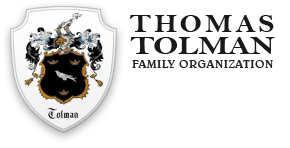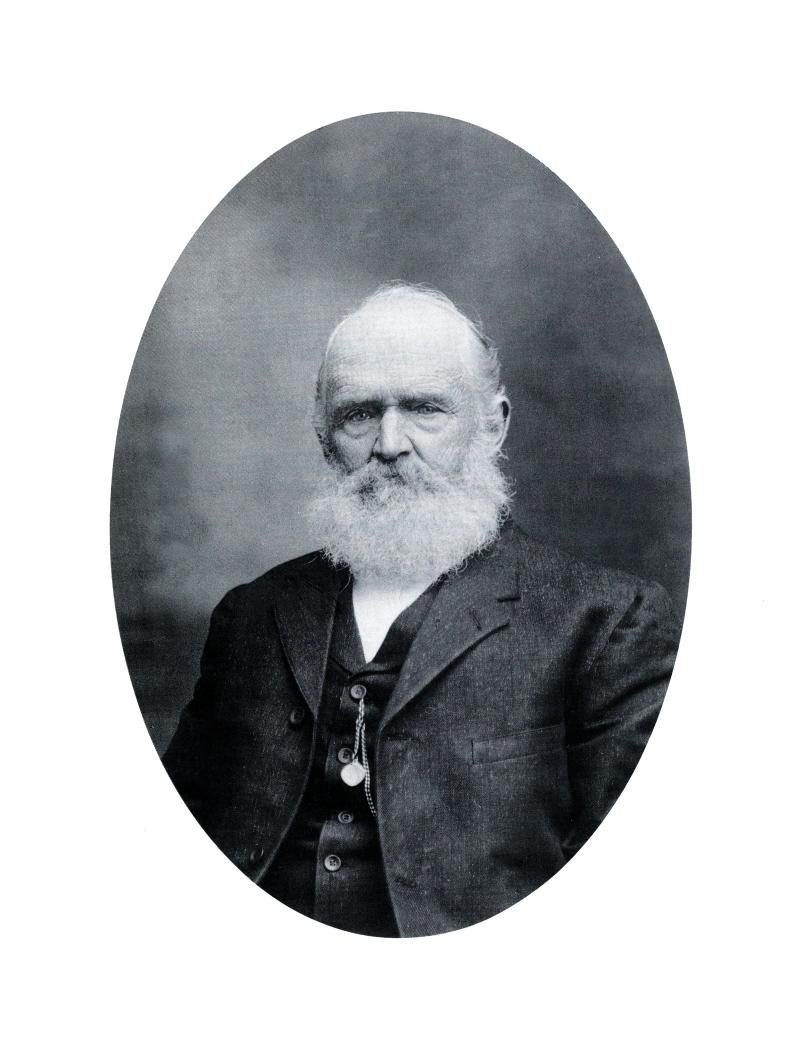It was on the evening of July 6, 1916 that Judson Tolman died at his home on the east bench in Bountiful, just one week prior to his ninetieth birthday. His death was the result of natural causes. A copy of his obituary is reprinted below, and reads as follows:
BOUNTIFUL: Judson Tolman of Bountiful, Pioneer And Patriarch, Dead
Bountiful, July 7,—Judson Tolman, a patriarch in the Church of Jesus Christ of Latter-day Saints, died at his home here last night. Judson Tolman was born in Maine, July 14,1826 and came to Utah in 1848, moving the same year to Bountiful, which had ever since been his home, with the exception of a short period spent in Tooele. He was the father of 29 children, 17 of whom and his wife survive him. Mr. Tolman came of old Puritan stock, his ancestors having arrived in America in 1630. In 1837 he moved with his father’s family to
Iowa, where he was baptized in 1845. He went to Nauvoo the following year and joined the Saints migrating westward. He was in Hosea Stout’s company and continued with the company to the Missouri River, helping to build the bridges, make the roads and raft the wagons over the streams. He remained with the company until the Mormon Battalion was organized and left for Mexico. He took part in the Echo Canyon episode and had a part in all the early pioneer life of his community. He was ordained a patriarch in 1897 and was known for his great faith and integrity. Funeral services will be held in the First ward chapel in Bountiful Sunday, July 9 at 2 o’clock p.m. The casket will be open at the home of D. R. Tolman from 12 till 1:30 on the day of the funeral.
Lucile Tolman Knighton recalls some of the detail surrounding those events. She remembers that the body was packed in blocks of ice and that the viewing was held under the window in the large room on the north side of the house. At eight years of age, she and other young women served as flower girls for the funeral services. The following information describing the death of President John Taylor may be helpful in understanding the customs of the day with respect to pre-burial care:
“After a few minutes, brother (George Q.) Cannon came to me and told me he wanted H. C. Birrell, Brother Malin and myself to wash him (President Taylor’s body). Brother Birrell and I washed him while Brother Malin went for ice… In the 1850-60’s there were no undertakers. They packed the bodies in ice and sat up with them all night… The President’s body was in the refrigerator (ice box) and was being taken by wagon to a special train on the U.C.R.R. tracks to be conveyed to Salt Lake City.” ( Jensen, Julietta Bateman, Little Gold Pieces, Stanway Printing Company, 1948, pp 242-246.)
On the day of the funeral, following the viewing at the home of Judson’s son David R. Tolman, Lucile Knighton describes a large congregation that attended the funeral services at the Bountiful Tabernacle. The principal speaker at those services was Charles Rendell Mabey, a grandson. Interment took place at the Bountiful Cemetery, where a granite monument reading “Tolman—Pioneer of 1848” has been placed adjacent to the grave sites of Judson Tolman and his family members.
There is reason to esteem the blood and the heritage which we have received through our pioneer ancestor, Judson Tolman. He was the first to embrace the restored gospel. He was valiant in his work within the kingdom of God. He worked tirelessly with his neighbors to help establish the city of Bountiful. He was the driving force behind our Family Genealogical Organization. That he was fallible is merely evidence that he was mortal and vulnerable. That he remained faithful, was re-baptized and ultimately received a complete reinstatement of his covenant blessings and his priesthood powers, provides a pattern for each of us who has similarly erred. If we have not, we will be much the happier with Judson Tolman in our reunion on the other side.
(Contributed by the Thomas Tolman Family Organization. Excerpt from Judson Tolman: Pioneer, Lumberman, Patriarch by E. Dennis Tolman, Second Edition, 2004, pages 99-101.)


